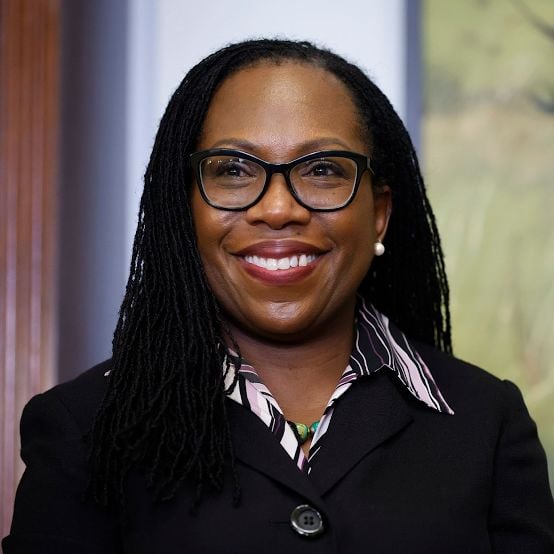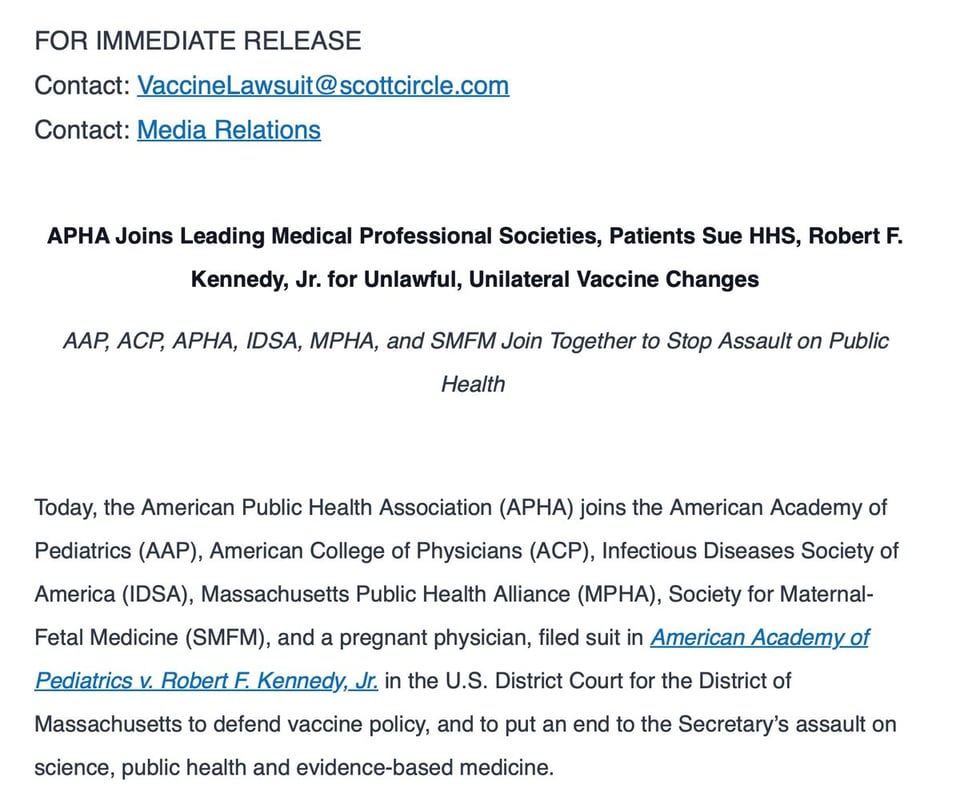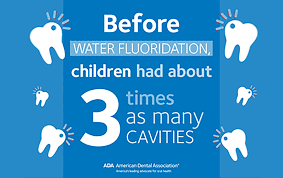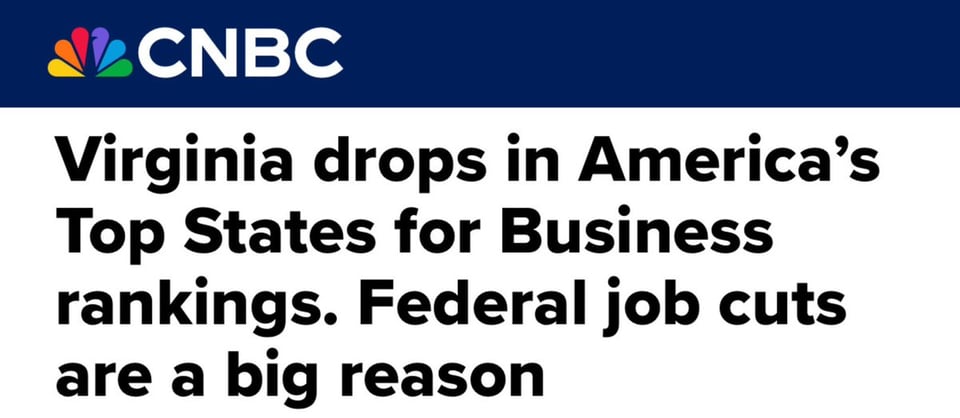Friday, July 11, 2025. Annette’s Roundup for Democracy.
Me too! You? 👇
Justice Jackson Says ‘the State of Our Democracy’ Keeps Her Up at Night.

At a bar association event in Indiana, the justice told those gathered that she is focused on drawing attention to what is happening to the government.
The question to the Supreme Court justice seemed lighthearted, following inquiries about her favorite song and what book she is reading.
Justice Ketanji Brown Jackson’s answer was deeply serious.
When a federal judge asked the justice what kept her up at night, Justice Jackson paused, then said, “I would say the state of our democracy.”
The crowd was quiet for a moment, then burst into applause.
“I’m really very interested in getting people to focus and to invest and to pay attention to what is happening in our country and in our government,” she said at an event on Thursday for the Indianapolis Bar Association.
Justice Jackson did not elaborate on what she meant or detail specific concerns. Still, it was striking for a sitting Supreme Court justice to go out of her way to publicly express concern about the state of the country.
Although Justice Jackson, 54, is the court’s most junior member, she has not hesitated to use her voice, writing an unusually large number of concurring and dissenting opinions during the court’s most recent term, which ended in late June.
She has also written sharp criticisms of her colleagues’ recent emergency rulings that have given President Donald J. Trump broad powers to reshape the federal government; deport immigrants to third countries, in some cases war-torn nations; and to end protections for hundreds of thousands of migrants. Together, her writings and her public remarks suggest that the court’s newest member is growing increasingly dissatisfied with the direction of the country.
Earlier this week, in a scathing 15-page dissent, she wrote that a decision by the court to allow the Trump administration to move ahead with firing tens of thousands of federal workers was “not only truly unfortunate but also hubristic and senseless.”
Writing for herself and joined by neither of the court’s two other liberal members, she wrote that the justices had weakened the authority of federal trial judges by swooping in to “second-guess a lower court’s factual findings.”
Her words echoed a sharp dissent she had issued in late June in a landmark ruling by the court that curtailed the power of federal judges to issue sweeping blocks on Trump administration policies, including pausing President Trump’s executive order ending birthright citizenship. The majority, she wrote, was creating “a zone of lawlessness within which the executive has the prerogative to take or leave the law as it wishes.”
That led to an unusually targeted critique from Justice Amy Coney Barrett, one of the court’s conservatives, who wrote the majority opinion in the case.
“We will not dwell on Justice Jackson’s argument, which is at odds with more than two centuries’ worth of precedent, not to mention the Constitution itself,” Justice Barrett wrote, in an opinion signed by all five of the other Republican appointees.
During Thursday’s event, Justice Jackson did not revisit those debates, instead largely focusing on her personal story and her journey to becoming the first Black woman on the Supreme Court.
But near the end of the discussion, Justice Jackson opened up about her experiences as a justice since joining the court in 2022. She said she was surprised to learn how formally the justices treat one another, even when they are out of public view.
“I kind of thought maybe when the justices go into conference, they let their hair down a little bit,” she said. Instead, she said that their relationship remains ceremonial even “behind closed doors when no one is there.”
She explained that she felt compelled to write dissents when she had “a slightly different perspective, or a different take on something” from the other justices.
Often, justices who share a desired outcome on a case come together to agree on a single opinion, even in dissents. But Justice Jackson described going to Justice Sonia Sotomayor, the court’s most senior liberal justice, to let her know that she would be writing on her own.
“I will say, forgive me, Justice Sotomayor, but I need to write on this case, and it’s because I feel like I might have something to offer and something to add,” Justice Jackson said.
“I’m not afraid to use my voice,” she added. (New York Times)
A partial update on Robert Kennedy, Jr. and the considerable damage he is causing.
We need to know in order to fight.
Who is trying to protect children against him and the U.S. Department of Health and Human Services?

-American Academy of Pediatrics
-American College of Physicians
-American Public Health Association
-Infectious Diseases Society of America
-Massachusetts Public Health Alliance
-Society for Maternal-Fetal Medicine
...& one brave pregnant physician

In case you were wondering, the pregnant physician in question is an unnamed physician (“Jane Doe”) who works in a Massachusetts hospital and is over 20 weeks pregnant. She fears that Kennedy’s May 19 directive—removing official COVID-19 vaccine recommendations for healthy pregnant individuals (and children)—will prevent her from obtaining a needed booster during pregnancy and put her unborn child at risk.
One more thing.
We need to fight and win on this too. 👇
RFK Jr. is winning on fluoride. Dentists foresee a cavity crisis.
Dentists are proving no match for Robert F. Kennedy Jr. in the battle over fluoride.

Utah and Florida have this year banned the cavity-fighting mineral from drinking water and several other Republican-led states are considering it. Oklahoma has dropped its recommendation that localities fluoridate. Net effect: The nearly three-quarters of Americans who drank fluoridated water before Kennedy became secretary of Health and Human Services is set to plummet.
For Kennedy, who’s long believed drinking fluoride is unhealthy, that’s a win.
“Fluoride’s predominant benefit to teeth comes from topical contact with the outside of the teeth, not from ingestion,” an HHS spokesperson told POLITICO. “There is no need, therefore, to ingest fluoride.”
The impact the retreat from fluoridation has on oral health will show whether dentists are right, that a cavity crisis will follow, or whether Kennedy’s view, that Americans can get the fluoride they need in toothpaste and mouthwash, will bear out.
The Centers for Disease Control and Prevention, an agency within HHS, has held out fluoridation as one of the 10 greatest public health achievements of the 20th century, citing data that it reduces tooth decay by as much as 70 percent in children and tooth loss by as much as 60 percent in adults.
But Kennedy nonetheless believes the case to remove fluoride is urgent because of evidence that it can curtail children’s brain development. It’s a position bolstered by a report from the National Institutes of Environmental Health Sciences during the Biden administration and an Obama-appointed federal judge last year — though the levels of fluoride they examined were higher than what Americans consume.
Dentists see it otherwise.
“This is revving up an anti-science narrative,” said Brett Kessler, the president of the American Dental Association, the country’s leading dentists’ group. “There are ways to get fluoride in toothpaste, some of the foods we eat, some of the drinks we drink, topical fluoride mouthwashes. … But without fluoridated water you’re already behind the eight ball because you’ve got vulnerable teeth.”
Dentists’ case
Opposition to adding the cavity-fighting mineral to water — based on a mishmash of reasoning around the purity of the drinking supply, concerns about side effects and conspiracy theories — has long been a cause of some on the left.
Before Utah and Florida’s moves, residents of Hawaii, New Jersey and Oregon were the least likely to have fluoride in their water, according to a review of 2022 data by the United Health Foundation, a philanthropy started by the insurer UnitedHealth Group to promote better public health.
(The same study found 79 percent of Floridians and 43 percent of Utahns drank fluoridated water.)
Health researchers have mostly found that low levels of fluoride, including the amounts found in drinking water systems across the U.S., are safe and can help fortify teeth against decay and other ailments.
Many communities began to fluoridate their water in the mid-1900s at the behest of voters and their local and state governments. In 1962, HHS started providing guidance on fluoride in drinking water, and the Environmental Protection Agency invoked the Safe Drinking Water Act years later to enforce these standards, though fluoridation is still done at states’ discretion.
But research, much of it in China, has since prompted the Trump administration to question those standards. The findings suggest higher levels of fluoride in groundwater are linked to neurobehavioral issues and reduced IQ in children, but those results are not definitive due to study designs and methodology.
Opponents of fluoridation in blue jurisdictions like Portland, Oregon, and Hawaii, historically have made the case that the best water is the least touched by human hands.
“The attitude was, ‘don’t ruin our pure water,’” said Barry Taylor, the executive director of the Oregon Dental Association. He says the Chinese studies have only made convincing Oregonians otherwise harder because they’ve added “a new element of doubt.”
Kessler contends the studies are not applicable to the U.S. because of the difference in fluoride levels and confounding variables. “It could be lower IQ parents. It could be a lack of special foods that could help brain development. And it could just be DNA or genetics,” Kessler said.
Dental health advocates also see a flaw in Kennedy’s case that mouthwash and toothpaste are all people need. They argue that some Americans don’t use the products, either because they can’t get to a store, can’t afford them or because they choose not to, putting them at risk.
“This is a lot of forces coming together to undermine oral health for particularly people that are lower income or in areas that may not have as many resources to get the oral health care they need,” said Melissa Burroughs, senior director of public policy at CareQuest, an oral health advocacy group aligned with the dentists.
The American Dental Association’s Kessler says the battle is far from over, pointing to the ADA’s success this year in persuading state lawmakers to reject bills that would have banned fluoridation or otherwise impeded fluoridation efforts in 16 states across the political spectrum, including Hawaii.
Kennedy’s campaign
Kennedy traveled to Salt Lake City in April to praise Utah for becoming the first state to ban fluoride in a state’s water. The rule took effect in May.
“It makes no sense to have it in our water supply,” Kennedy said at a news conference with state lawmakers. “I’m very, very proud of this state for being the first state to ban it, and I hope many more will come.”
Kennedy hasn’t withdrawn Centers for Disease Control and Prevention guidance encouraging fluoridation but he’s threatening to do so.
Earlier this year, he directed the CDC to reconvene the Community Preventive Services Task Force, an independent panel of experts, to study the issue.
And his concerns about fluoride are filtering into other agencies’ agendas. The Food and Drug Administration has announced it plans to ban ingestible fluoride pills and drops marketed to children. It’s convening a public meeting on the issue on July 23.
The response has not always followed partisan lines.
When Kennedy appeared before a House Appropriations subcommittee in May, Rep. Mike Simpson of Idaho, a Republican and a dentist, said he’d seen the benefits of fluoride during his 22 years taking care of patients’ teeth.
“If you are successful in banning fluoride, we better put a lot more money into dental education because we’re going to need a whole lot more dentists,” Simpson said.
Kennedy didn’t back down. “We now know that virtually all the benefit is topical, and we can get that through mouthwashes,” he said. (Politico).

Some news which evokes race.
Two good people met yesterday.
Harvard Professor Henry Lewis Gates, Jr. visited Pope Leo.
Henry Louis Gates Jr. just met with Pope Leo to hand-deliver the results of a sweeping genealogical report.
— Christopher Hale (@chrisjollyhale) July 10, 2025
At the heart of Gates’s findings is this: Leo is part black.
Leo received the report with excitement and plans to read it in full over vacation. https://t.co/WtmP84Mq0U
Keep thinking about tomorrow. Here’s a way to move forward.
Virginia is the ONLY state in the nation where Democrats can flip a Governor's seat blue in 2025.
Keep Abigail Spanberger and the state of Virginia on your mind.
Touch to watch. 👇
I’m Abigail Spanberger. I grew up walking the halls of J.R. Tucker High School. I spent years as a CIA case officer, a Congresswoman, and now, I’m running to be Virginia’s next Governor.
— Abigail Spanberger (@SpanbergerForVA) June 18, 2025
Watch our first TV and Digital ad of the general election: pic.twitter.com/dfZmc6BYxq
One more thing. Or two. Or three.
Remember that many workers fired by Trump live in Northern Virginia. They and their families and friends are ready to fight back.

Reproductive Rights are on the line in Virginia.
Reproductive healthcare decisions should be left between a woman and her doctor — not dictated by politicians.
— Abigail Spanberger (@SpanbergerForVA) July 10, 2025
As Governor, I’ll always defend reproductive freedom in Virginia.
Virginia is ours for the taking.
Click here. Donate to Abigail Spanberger for Governor
Wimbledon Finals will soon be upon us.
The last 4 Grand Slam finals have featured an American woman.
— The Tennis Letter (@TheTennisLetter) July 10, 2025
Jessica Pegula - US Open 2024.
Madison Keys - Australian Open 2025.
Coco Gauff - Roland Garros 2025.
𝐀𝐦𝐚𝐧𝐝𝐚 𝐀𝐧𝐢𝐬𝐢𝐦𝐨𝐯𝐚 - 𝟐𝟎𝟐𝟓 𝐖𝐢𝐦𝐛𝐥𝐞𝐝𝐨𝐧.
Proud moment for American tennis.
🇺🇸❤️ pic.twitter.com/sOCLBFSA5b
An American man Taylor Fritz is in the semi-finals too… today, against defending Wimbledon champion, Spain’s Carlos Alcarez.
Load up on those strawberries and cream.
Here's a cool detail from @JeffDarlington on ESPN:
— Joe Pompliano (@JoePompliano) July 10, 2025
Wimbledon's strawberries are hand-picked each morning. They arrive by 9 am, and any strawberries that don't get eaten that day are turned into jam, with a fresh batch arriving the next day.
The attention to detail is unmatched. pic.twitter.com/4gyvVjqT94
Enjoy the tennis and whatever else you fancy.
It promises to be a warm weekend. No ICE.
See you on Tuesday.